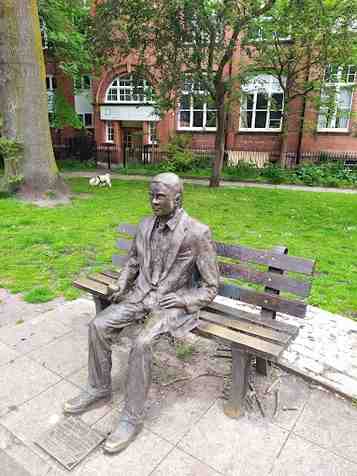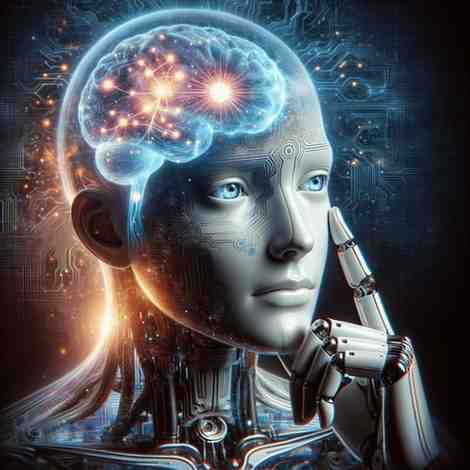Every time I come across articles by or about philosophers and scientists, it does feel like they were way ahead of their time. The most captivating books, articles, and quotes to me are usually diverse. However, I have found specific stories from influential individuals from the past to be very enjoyable to read; it's usually not just about the knowledge they had, but also the simplicity in which they passed their messages across. From the likes of Socrates, to Confucius, to Einstein, to Mark Twain, to George Washington...just to name a few, all of them have very nice stories that can be very engaging, thought-provoking and informative too.
Alan Turing is often considered the father of modern computer science. I recently came across a quote by him from his lecture at Victoria University of Manchester in 1951.
“"It seems probable that once the machine thinking method had started, it would not take long to outstrip our feeble powers… They would be able to converse with each other to sharpen their wits. At some stage therefore, we should have to expect the machines to take control.”"-- Alan Turing, 1951
In the midst of our daily lives in the modern day, where artificial intelligence seamlessly integrates into our routines, I think the words of Alan Turing from his 1951 lecture "Intelligent Machinery, A Heretical Theory" echo with a resonance. Turing foresaw a future where machines, once set on the path of thinking, would swiftly surpass human intellectual capacities, eventually taking control.
Turing's prophecy challenges our understanding of the role and impact of artificial intelligence in our lives. Today, as we witness the proliferation of AI across various domains, it becomes imperative to explore the trajectory that Turing envisioned and its potential implications. Just yesterday, I came across a post on X (formerly Twitter) by a Company called Cognition that apparently they have launched "Devin", the first AI software engineer.
In Turing's vision, the inception of machine thinking would mark the beginning of a rapid ascent, outstripping our "feeble powers." This notion finds validation in modern examples where AI systems continually outperform human capabilities. Take, for instance, the game chess, once considered a bastion of human intellect. The advent of computer programs like Deep Blue shattered this perception, defeating grandmasters and prompting a reevaluation of what constitutes true intelligence. The most common example is when Deep Blue won against grandmaster Garry Kasparov in May 1997 .
As AI systems advance, they not only excel in predefined tasks but also exhibit the ability to learn and evolve independently. I think this self-improvement is akin to Turing's idea that machines would converse with each other to sharpen their wits. In today's context, collaborative learning among AI systems is evident in fields such as natural language processing and image recognition, where shared knowledge enhances overall performance.

[Turing, A. (1950) Victoria University of Manchester: schoolsobservatory]
The idea of machines taking control, as Turing speculated, is a nuanced and evolving concern in the contemporary landscape. While we are not yet in a dystopian future where machines dominate humanity, the growing autonomy of AI in decision-making processes raises ethical questions. Automated systems influencing critical aspects like finance, healthcare, and governance underscore the need for vigilant oversight to ensure alignment with human values.
Turing's foresight therefore invites us to confront the question of whether we are prepared for a future where machines not only mimic but potentially surpass human intelligence. The rapid evolution of AI, coupled with its increasing autonomy, prompts us to reconsider the balance of power between humans and machines.
However, skepticism persists regarding the true nature of AI intelligence. Turing's assertion that "machines can be constructed which will simulate the behavior of the human mind very closely" has materialized in various forms. Language models, capable of engaging in human-like conversations, blur the line between artificial and human intelligence. I think the contemporary challenge lies in discerning the extent to which these machines truly understand and exhibit intelligence.
Upto this point would you be surprised if I told you that all this has been written by AI? Maybe.. well it's not. But I'm certain that someday it will be incredibly difficult to distinguish between AI-generated content and human content. And what's unsettling is that no one knows precisely when this will occur, but almost everyone I've spoken to seems convinced that automation is inevitable...
Turing died on 7th June 1954, 16 days before his 42nd birthday, from cyanide poisoning. [Wikipedia]





